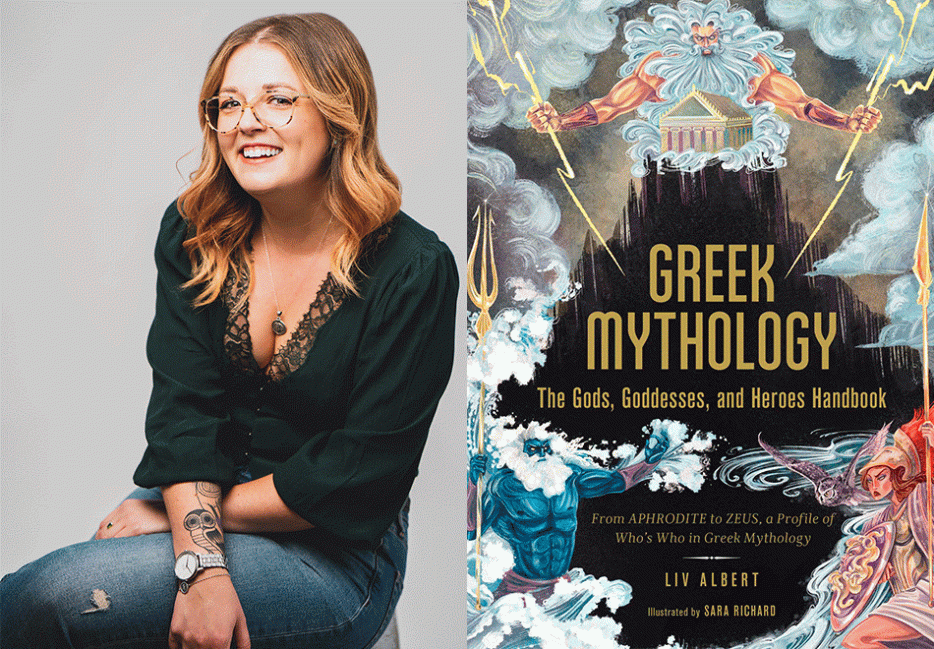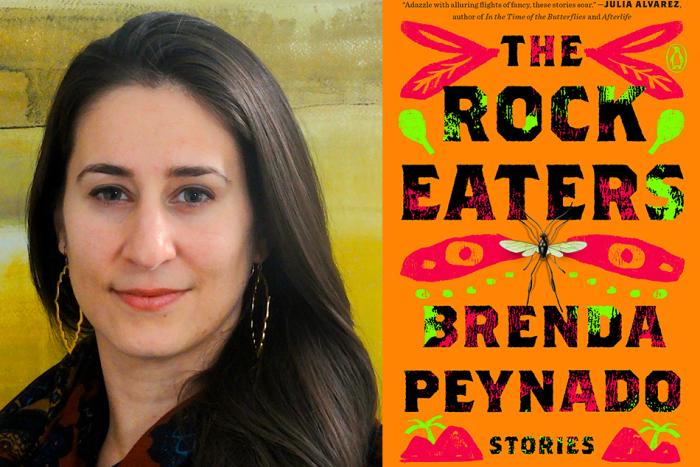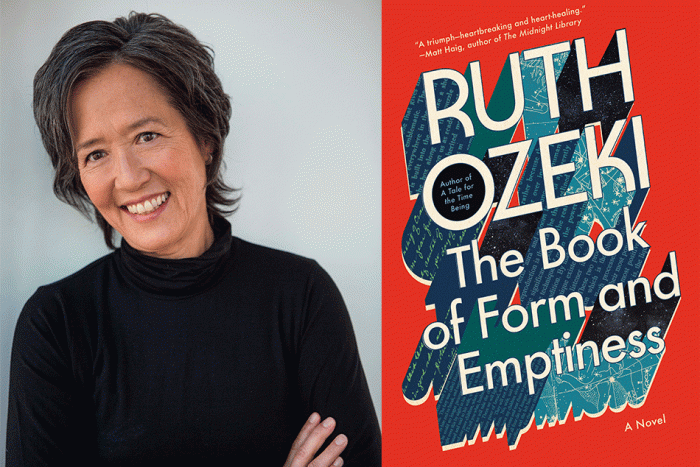Historically, translating the Greek epics has been the domain of men. For around 400 years, no woman had ever translated the Odyssey. Then in 2017, British classicist Emily Wilson became the first woman to translate Homer’s poem into English. Wilson’s translation was radically different than her predecessors’, not only because she uses plain, contemporary language, but because she re-interprets gender and class within the story. While previous translations have used the term “whores,” “the creatures,” or “sluts” to describe the women living in Odysseus’s palace when he returns, Wilson simply calls them “the girls,” noting that any other term is a misogynistic interpretation of the original Greek.
In an essay in The Guardian, Wilson writes that “female translators often stand at a critical distance when approaching authors who are not only male, but also deeply embedded in a canon that has for many centuries been imagined as belonging to men. The inability to take classical texts for granted is a great gift that some female translators are able to use as a point of leverage, to shift the canon to a different and unexpected place.”
Shifting the canon is also at the crux of author and podcaster Liv Albert’s work. In her debut book, Greek Mythology: The Gods, Goddesses, and Heroes Handbook (Adams), Albert breaks down the histories, symbols, and cultural significance of the major players in Greek mythology and how their stories intersect. Unlike so many mythology books—which often employ stuffy and overwrought language—Albert uses a conversational tone and plays up the inherent humour of these stories. She describes Zeus as “far from the loving, doting father of Disney’s Hercules” and instead a god who “used his power and influence to ruin nearly everyone he came into contact with,” and Aphrodite as being “renowned for her beauty (which she was very, very, aware of).”
Albert first studied mythology in elementary school, but only became obsessed when she was writing a novel about Greek mythology in her early 20s. When she couldn’t figure out how to get her novel published, she decided to study English and Classics at Concordia University. After graduating, she worked in book publishing in Toronto and eventually moved to Vancouver, where she got a high-paying but soul-sucking job at an aerospace company. She passed the time at work listening to podcasts, which inspired her to start her own. She brings wit and a decidedly feminist perspective to Let’s Talk About Myths, Baby!, where in each episode she unpacks the specific story in Roman and Greek mythology, interviews classics scholars and academics, or reads the Odyssey and other classic works, like the Argonautica by Apollonius Rhodius.
Albert is a part of a new wave of women writers, cartoonists, and podcasters who are re-examining a genre that for so long has been the purview of old white men. There’s Madeline Miller’s New York Times-bestselling novel, Circe, which is written from the perspective of the immortal witch; Pat Barker’s Silence of the Girls, a retelling of the Iliad through the voice of Achilles’s concubine, Briseis; Rachel Smythe’s webcomic Lore Olympus; and Jess Zimmerman’s Women and Other Monsters, an essay collection that reframes the female monsters of Greek mythology, just to name a few.
Albert’s The Handbook is a smart and witty introduction to the world of mythology. But it also makes the argument that even two millennia after these stories were first written down, there are still new discoveries to be made in-between the lines.
I spoke with Albert about unpacking the biases in centuries-old translations, the importance of language, and why her podcast makes men so mad.
Samantha Edwards: In the intro of your book, you write about how Greek myths started as oral stories that were later written down by Homer, or retold by playwrights like Sophocles and Euripides. So as a result, there are many slightly different versions of these stories. Maybe it’s because I'm a journalist, but I always found that aspect of mythology kind of annoying, like how you can never just confirm specific details or how there’s not a definitive source for certain myths. Is this something that bugs you? Or is that part of the fun, just digging through the different versions?
Liv Albert: Yeah, I love it. I think it’s fascinating thinking about why they’re different, whether it’s because of who is telling the story or where the story originates from. Sometimes they’re different because there's 700 years in between the two sources. That's the thing people don't think about. The time between Homer and Euripides is like 400 years. So, it's like saying, Well, why isn’t this thing from Victorian England the same as it is in the 21st century? We’re so far removed from it we don't often think about the time between sources.
How has your approach to researching myths for your podcast, Let’s Talk About Myths, Baby! changed since you first started?
It's changed so much. I notoriously wrote the first few episodes on the Notes app of my phone, while not doing the job that I hated. I was just using Wikipedia and whatever I could find online. And then, slowly I was getting a hold of Greek myth books and working off of them. Then I went on to the Iliad, which is a little easier because you're not worrying about super biased retellings, you just have to worry about biased translations. I now read every primary source I can find, and then try to piece together something from like four or five different sources. I almost never read secondary sources. I'm very proud of how I do it now. I'm not not proud of how I did the earlier ones, but I really prefer what I do now, which is just so much more in depth.
Can you tell me a bit about the biased retellings and how you've come across those in your own research?
In ancient Greece and in Greek mythology, we only know what has survived. We don't know what women were telling each other of the stories back then. We only know what somebody wrote on a piece of paper, and then what countless people over millennia chose to recopy so that we have it today. We have really select information and from really select people, and those people are men. And up until the past few decades, most of the translations were also by men.
Emily Wilson's recent translation of The Odyssey got a lot of press for addressing how [previous translations] used the word “slut” or “harlot” when the original Greek is just a form of the word “woman.” There’s a bias that’s not in the original text, but in the person translating. That happens a lot, and it means that almost every book of Greek myths says things like, “Zeus wrapped her away,” or “he ravished her.” These are euphemisms for assault. You have to read between the lines and gather that, but I don't think men often do that, by and large. One of the things I'm most proud about, when it comes to The Handbook, is that it uses the word ‘assault’ to describe what the gods did to women and other goddesses, because that's what it was.
Hesiod is one of the earliest sources we have of Greek myths, and he just happened to not really care whether or not [sex] was consensual. It's just sort of like, 'this happened.” Now I have men on Twitter yelling at me because when I say that somebody assaulted somebody else, they're like, "Well, no, it just says this." They think that just because one man in 750 BC didn't explicitly say that the woman wasn't into it, that somehow means it definitely wasn't assault.
In mythology, why do you think it's important that if it's an assault, we call it an assault? These stories are so old and they're all myths, so those guys on Twitter could be like, “What does it matter what words we use because it actually didn't happen anyway?” Why do you feel it's important that we choose the language that we do when we tell these stories?
Yeah, ultimately, that's true. These myths are fiction, but they're also fiction based in a society that was real and that didn't value people who weren't Greek men. While it might not seem like it is necessary to say Zeus assaulted everyone, I think it's important it gives a voice and a story to marginalized people more broadly. Like sure, it's not that big of a deal that one mythological, fictional woman had a bad encounter with a god. But by calling it what it is, it points out how the way we tell these stories has been influenced by men, and how maybe it's time for other people to have a voice.
I know that you make a conscious effort to look at myths through a feminist lens. How should race and ethnicity play into how modern scholars or myth enthusiasts look at these stories?
I think that's really important and it's something I’ve tried to do more and more. It’s a little tricky, mostly because [the Greeks] didn't see race like we did. They weren’t a culturally accepting society, but it wasn’t about skin colour. It was about whether you were politically cultured, where you were from, and if you spoke Greek. Skin colour didn't matter. But the thing that becomes most problematic now is that there's this completely inaccurate idea that Greece and Rome founded ‘Western civilization,’ and that we have everything because of them, and primarily, that they should be considered to be white. The fact is that Athens and Rome were cities in the Mediterranean, and Northern Africa and the Middle East is also part of the Mediterranean. The Greeks traveled to all those places, they traded with all these people, they made friends and moved between cities. Ancient Greek and Roman civilizations were influenced by Africa and the Middle East.
Before we chatted, I was reading about the connection between white supremacy and classics. Some modern white supremacists in the United States are obsessed with classical architecture. They use images of marble columns and sculptures in their branding, and at marches, they’ll have signs that say, "Protect our heritage" with an image of a marble bust. It feels like the whitewashing of classics legitimatizes these people’s views and makes them feel more authentic.
That's exactly right. We’ve placed this whiteness upon these civilizations that were completely multicultural and worked with the whole of the Mediterranean. But white supremacists [who are obsessed with classics] have this misunderstanding over who actually gave us what we have today, who gave us astronomy and math, and all these things. It’s all just placed upon the Greeks, as if they did it all in a vacuum and were not deeply involved with the whole of the region.
A really important thing that doesn't get mentioned a lot outside of academic circles is that there's also almost a literal whitewashing involved too. Polychromy, [the practise of decorating architectural elements and sculpture in a variety of colours], was the way that they actually did their statues back then. They were painted shades of beige. They weren't white—the colour has just come off because it's been 2,500 years. This idea that even the statues are visibly white because it's marble is wrong.
Generally, why do you think it's worthwhile studying and retelling these stories now?
I definitely started getting into mythology because the stories are really interesting and funny. Now the longer I’m in it, I also want to take back some of these stories that have been whitewashed or have been taken over by this patriarchal idea that's just false. For example, stories like Medusa: There's no evidence that she did any harm, that she was evil in any way. There's nothing. She lived at the ends of the earth, and she kept to herself. She just might have looked like a monster, and even that we're not totally sure of. And yet, we have this idea that she was awful and evil and deserves to be killed—and that comes from misogyny. In a world that has so many monsters, she's the only monster that’s treated like that, and it's just really interesting to think about where that comes from.
Who else—whether heroes, gods, goddesses or—do you think are the most misunderstood?
There's so many. A fun one is Pegasus. I think a lot of people in the general millennial age group who think of Pegasus are going to think of Disney's Hercules, like this cute little horse born of clouds who Hercules rode. Pegasus was actually born from Medusa’s head after it was cut off by Perseus. He cut off this woman's head who wasn't asking for any trouble, and out flew her child. Pegasus was actually the child of Poseidon and had just been gestating inside of Medusa, waiting for her head to come off. On top of that, the only hero who ever actually rode Pegasus was a poor guy named Bellerophon, who's never talked about. Meanwhile, Hercules and Perseus are always the ones riding Pegasus in pop culture.
Oh no, that guy needs his own story now.
I know. He's the poor guy. He's really not in anything and he is the only hero who rode Pegasus in Greek mythology.
He deserves his proper due as the guy who rode Pegasus.
I'm pretty sure my podcast episode on him is called "The Underserved Hero Who Actually Rode Pegasus."
Well, there you go! Finally, I wanted to ask you about the quote in your Twitter bio that says you “ruin mythology.” What’s the context of that quote?
The funniest thing I've experienced with the podcast—and I would say it's about 95 per cent of my bad reviews—is just how triggered straight men get about a woman taking these stories that they have always thought were for them, and making them for everyone. It lends itself back to that question you asked earlier, about why I think it's important to tell it like it is versus how it's been said over time, because [men] really get mad that I say bad things about heroes. These stories were always made for them, and I'm just saying they're for everyone. That makes a lot of people angry. I get reviews that are like, “I just wish she'd stick to the myth,” or “She’s so biased.” But I'm like, no, the earlier ones were biased. I'm just breaking that apart. Every person telling these stories, writing them down, translating them and talking about them—everyone was a man. That creates an inherent bias that I am looking at now, and it makes people feel bad. And so yes, one random, angry white man Tweeted at me and said I “ruined mythology” and I decided that needed to be in my Twitter bio forever.






